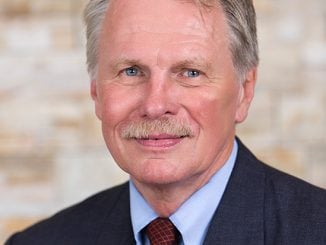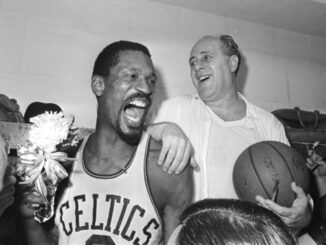My reflection on the celebration of Martin Luther King Jr. Day this year is a little more earnest since we are getting closer to commemoration services in the future where he would not have been alive.
King would have been 91 on Jan. 15, and if he were addressing the nation, I can imagine him preaching a message somewhat like this in his spirited oratory: “We’ve come a mighty long way, America, but the road ahead is still an arduous journey, and we must not grow weary. We are still fighting the cruel clutch of cyclical poverty and the stifling hand of social inequality. We have not reached the mountaintop of race relations, but in 2020 we have torn down many cultural barriers that once blocked the bands of brotherhood we aim to strengthen. We go to school together. We commune at work together, and some of us go to church together. But with the progress that the everlasting God has blessed my eyes to see in nearly a century of living, I’d like to remind the church, the glorified body of Christ, that it must not be conformed to this world!”
I paraphrased Romans 12:2 because King actually said this 63 years ago in a message he preached at Dexter Avenue Baptist Church, the congregation he pastored from 1954 to 1960 in Montgomery, Alabama. The sermon was creatively titled “Paul’s Letter to American Christians.” In “A Knock At Midnight,” a compilation of King’s most well-known sermons, the Rev. C.T. Vivian wrote that in “Paul’s Letter to American Christians,” King would “forever preach that social problems and racism in particular are moral and spiritual problems that create political and economic consequences.” Vivian, who is often referred to as one of King’s lieutenants in the civil rights movement, also points out that King was disturbed by the racial segregation in Protestant denominations.
The Paulinian voice that King utilized in this Dexter Avenue address is still applicable when we discuss how the church should minister to those in need and how it must become more unified. Those of you who are familiar with the Apostle Paul’s epistles in the New Testament know that he did not compromise these precepts.
King did not mince words either when he authoritatively stated: “The Christian owes his ultimate allegiance to God. You must never allow the transitory evanescent demands of man-made institutions to take precedence over the eternal demands of the Almighty God.” One of these “man-made institutions” that King was highly critical of is capitalism, not the free market that allows private businesses to earn profits but rather the “misuse” of economic prosperity that he believed resulted in the wealth gap between the rich and poor.
King mentioned at this time that one-tenth of 1% of the population controlled more than 40% of the country’s wealth. Studies such as the Survey of Consumer Finances, sponsored by the Federal Reserve Board, reported that in 2017, 40% of the nation’s wealth was controlled by the wealthiest 1%. King appealed to those in the church with “powerful economic resources” to do more in helping to alleviate poverty, and he would continue to make this plea today.
I know that King would be very disappointed that many churches remain highly segregated in our present time. He once said — not in his Dexter Avenue sermon — that “the most segregated hour of Christian America is 11 o’clock on Sunday morning.” This is gradually changing, as a 2012 Pew Research report showed that 20% of Americans attend churches where “no single racial or ethnic group” comprises more than 80% of the worshippers. In “Paul’s Letter,” King passionately asserted that church racial segregation could not be justified, quoting Acts 17:26, which says God “hath made of one blood all nations of men for to dwell on all the face of the Earth.”
Reading the conclusion of this sermon brings hope, as all of King’s visionary words did when he declared that the Christian virtue of love would one day unite us. He encouraged the Dexter Avenue parishioners to remain strong in their faith and not succumb to the materialistic temptations that would draw them away from their purpose in God to serve others. King would challenge the church today in the same fiery manner, a prophetic message I would have loved to hear.
Dr. Jessica A. Johnson is a lecturer in the English department at Ohio State University’s Lima campus.


